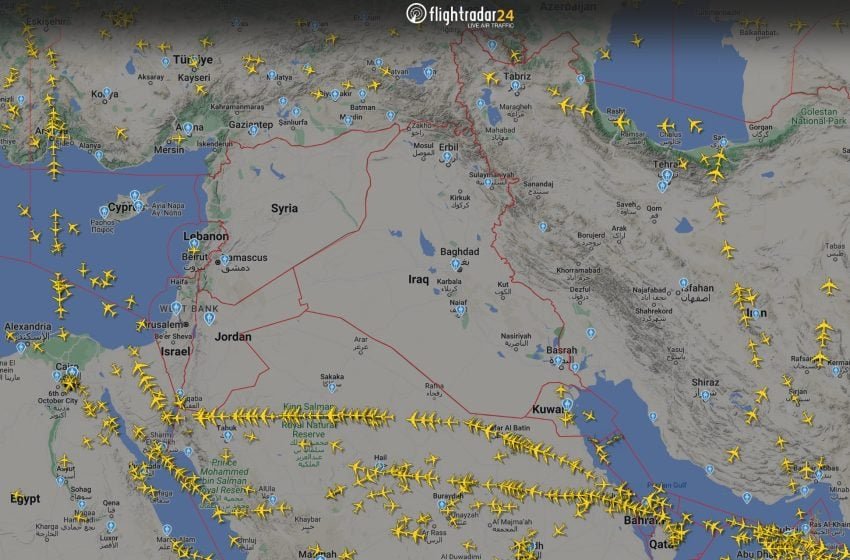Iraq faces severe financial losses as the Iraq airspace crisis continues to impact aviation revenue. Since airspace closure due to rising Iran-Israel tensions, Iraq has lost millions in daily income. Officials say the complete shutdown began earlier this month, affecting hundreds of flights that once crossed the country’s skies.
Before the crisis, around 700 aircraft flew through Iraqi airspace every day. These included both passenger and cargo flights. On average, Iraq earned $450 per passenger flight and $700 from each cargo plane.
In fact, Iraq’s General Company for Air Navigation Services recently reported nearly 20,000 overflights in a single month. The agency’s director highlighted Iraq’s growing status as a regional aviation hub. However, the Iraq airspace crisis has reversed much of that progress.
According to members of Iraq’s transport committee, direct financial losses now exceed $250,000 every day. These figures don’t include the broader impact on airlines, airport workers, and service providers.
Basra Airport, for example, has operated only 13 flights since the shutdown started. Baghdad, Najaf, and Erbil airports have also seen major disruptions. Many flights were either delayed or suspended entirely.
Airlines such as Iraqi Airways and Fly Baghdad rely heavily on airspace and route revenues. These self-funded carriers use those earnings to pay employee salaries and fund operations. Now, those salaries face serious risk as income drops rapidly.
Flight data confirms the fallout. Due to closed airspace in both Iraq and Iran, many international carriers changed their routes. Flights are now going through Saudi Arabia, increasing total traffic there from 700 to 1,400 daily.
Some airlines have shifted to routes over Pakistan and Afghanistan. In fact, flights across Afghanistan rose by 500%. Rerouted flights take up to two extra hours, pushing fuel and crew costs higher.
Airports in Iraq, especially in Baghdad and Erbil, previously served as vital points for regional transit. The Iraq airspace crisis has damaged their income streams from overflight fees, cargo, and ground services.
Analysts caution that continued closure could weaken Iraq’s aviation sector for years. Without quick solutions, Iraq risks falling behind its neighbors in air transport development.


